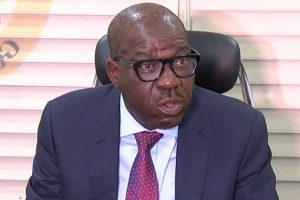Will the recent constitutional alteration bill proposed by a group of 60 lawmakers, known as the Parliamentary Group, aimed at replacing Nigeria’s current presidential system with the parliamentary system guarantee the realisation of the country’s full potential? Wale Igbintade asks
Penultimate week, news of a bill to introduce the parliamentary system of government in Nigeria made headlines as it passed first reading in the House of Representatives. The proposed legislation seeks to revert to the system used during the First Republic, wherein a prime minister, who is a member of parliament, would serve as the head of government in a British-type system of government.
The bill, sponsored by 60 lawmakers under the aegis of the Parliamentary Group, was introduced during the plenary.
The lawmakers said they target 2031 as the year for the transition to the parliamentary system, adding that they expect the bill to ignite, and provoke a national conversation about the future of the Nigerian governance system.
Briefing journalists after the plenary, the lawmakers said the “imperfections” in the presidential system of government have “become glaring” to all.
Abdulsamad Dasuki, a Peoples Democratic Party (PDP) member from Sokoto, who spoke on behalf of his colleagues, said the presidential system has “denied the nation the opportunity” of attaining its full potential.
The current attempt is not the first. A similar bill was sponsored in 2018 but did not scale through in the constitutional amendment process at the time.
Nigeria currently practises a presidential system of government, which allows for a direct election of the president.
The country operated the parliamentary system pre-independence and in the First Republic. Under the parliamentary system, the legislature appoints a prime minister, with a less defined separation of powers.
However, the coup of January 15, 1966 truncated that Republic. The military suspended the civil government and ruled the country until the transition to democracy in 1979, but the Second Republic was built on the 1979 Constitution which prescribed the presidential system.
Since the advent of civil rule in 1999, the cost of running a government has been on the high side.
The country’s budgets are more on recurrent expenditure than capital projects to maintain political office-holders and their numerous aides.
This has provoked thoughts amongst power brokers to revisit Nigeria’s governance structure and perhaps, return it to a less expensive and cumbersome type of government.
Their verdict is the need to return to the parliamentary system of government that the country operated in the First Republic under the 1960 and 1963 constitutions which offered some lessons for a time such as this.
Besides, many observers believe that the current 1999 Constitution is filled with abnormalities which have continued to undermine the living conditions of the common man in the country.
In the presidential system of government, the president has strong powers to function as head of government independent of the legislature. The president has executive powers which he can exercise directly or indirectly through his ministers.
The president is also the commander-in-chief of the armed forces of the federation.
The question is: Can the country continue to afford to give enormous powers to one man? The framers of the 1979 Constitution did not anticipate a president who could transform into a civilian dictator.
Many Nigerians are witnesses to what transpired in a previous administration, from cases of abuse of power to massive corruption, which exposed the dangers of the presidential system.
However, in a parliamentary system, the executive branch derives its legitimacy and authority from the legislative branch. The head of government (often the prime minister) is typically a member of the legislature and is accountable to it. This system fosters a close relationship between the executive and legislative branches, allowing for efficient decision-making and policy implementation.
The parliamentary system of government under the 1960 and 1963 constitutions was characterised by four main features: (1) the separation of the head of state and head of government. (2) the plurality of the executive. (3) parliamentary character of the executive, (4) the responsibility of the ministers to the legislature.
In the cabinet, all other members stand on equal footing – one man, one vote. It is the prime minister that is primus inter pares. The Council of Ministers derives its authority from the prime minister because they leave office when his tenure ceases. He chooses his ministers from among his colleagues in the parliament.
It is the prime minister, with his cabinet members, who coordinates the government while the governor-general plays a titular role. Executive members are also members of parliament. It is the political party that has the largest number of votes that form the cabinet.
In the parliamentary system, the legislature has greater control of the cabinet. The legislature could pass a vote-of-no confidence on any of the ministers, including the prime minister.
One recurring complaint from the National Assembly in the present republic is the non-implementation of the budget which has led to infrastructural decay and the absence of the dividends of democracy. Many believe that this cannot happen in a parliamentary system of government where the legislature has greater control of the executive.
Even though proponents of the presidential system of government might argue that under the 1999 Constitution, the legislature has the power to investigate government ministries and parastatals (Section 88 of the 1999 Constitution), the power to investigate is curative. But the parliamentary system will ensure a proactive approach to the issue; it will prevent it from happening. The point is well summed up in this aphorism: “Prevention is better than cure.”
Also, it is believed that the collective responsibility under the parliamentary system of government will make long-term planning easier and will effectively check any slide to civilian autocracy or dictatorship.
However, some experts believe that the parliamentary system polarised the country during the First Republic – especially as the prime minister needs not to be acceptable to the majority of citizens – paving the way for the military to strike.
For now, it is not exactly known what the position of the lawmakers is on true federalism, devolution of powers and restructuring, which many believe are still the pathway to an egalitarian and prosperous nation.
For instance, one of the most prominent proponents of restructuring, the late Professor Ben Nwabueze (SAN), had once said: “Nigeria, I am sure will be a viable project, if we embrace restructuring. Nigeria cannot be a viable project as it is presently constituted. If it is restructured and we have a change in attitude to leadership, to governance, this country can be a very good project.”
This is why it is also uncertain how far the lawmakers can go given that they generally do not like any bill that disrupts or unsettles the existing status quo.
Source
Disclaimer: No copyright infringement intended. All rights and credits reserved to respective owner(s).




















Add Comment